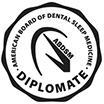Tooth Extractions – Indianapolis, IN
Gentle & Compassionate Tooth Removal
Here at Indy Dental Group, we strive to help our patients throughout the greater Indianapolis area to retain their natural teeth for as long as possible. However, circumstances may arise that require us to perform gentle and compassionate tooth removal. Why are tooth extractions sometimes necessary, and what can you expect during the procedure? Read on below to learn more about this restorative service, and get in touch with us when you are ready for a consultation.
Why Choose Indy Dental Group For Tooth Extractions?
- Sedation Available for Patient Comfort
- Wisdom Tooth Extractions Performed In-House
- Skilled & Compassionate Dental Team
Reasons Why Tooth Extractions Are Necessary
We might recommend that you undergo one or more tooth extractions if any of the following are true:
- A tooth is so badly damaged or decayed that it cannot be preserved via a crown or other restorative treatments.
- We must make room in your mouth for orthodontic appliances.
- You are preparing to get dentures.
- A child has primary (baby) teeth that have overstayed their welcome and may interfere with the development of the adult teeth.
- A wisdom tooth is impacted (stuck beneath the gumline), or you wish to remove your wisdom teeth for other reasons.
- You have a dental infection, and an extraction would be the best way to prevent the problem from spreading and causing further problems down the road.
The Process of Removing a Tooth
During a tooth extraction, one of the first things we do is make our patients comfortable. This involves numbing the mouth, and in some cases, we provide sedation as well.
Once you are ready, we use an instrument called an elevator to lift the tooth out of its socket. Then, we use forceps to grip the tooth and rock it back and forth in order to break the ligaments that are holding it place. After the tooth is out, we use gauze to control bleeding.
Of course, some extractions are more complicated. For example, if a wisdom tooth is impacted, we may have to create incisions in the gums or break the tooth into pieces before removing it.
Following your extraction, we will talk to you about your tooth replacement options. We may urge you to get a bridge, dental implant, or dentures.
Tooth Extraction Aftercare
Here are some tips to help you enjoy a smooth recovery following your extractions:
- Take all medications as recommended by our team.
- After the first 24 hours, start regularly rinsing your mouth with warm salt water.
- Do not smoke or consume alcohol.
- Be very gentle when carrying out your oral hygiene routine.
- Do not drink out of a straw.
- Keep your head propped up on pillows when you are lying down.
- Get plenty of rest.
- Attend all follow-up appointments as recommended so we can replace your lost teeth and help you prevent future oral health problems, such as dental drift and further tooth loss.
Understanding the Cost of Tooth Extractions
If a member of our Indy Dental Group team has recommended tooth extraction, you may begin to wonder how much this type of procedure will cost. It’s natural to be concerned about the financial aspects of treatment; however, it’s important to remember that forgoing necessary dental work will only lead to more serious and costlier care in the future. When it comes to determining the cost of your tooth extraction, various factors must be considered, and our team will help keep any out-of-pocket expenses as low as possible.
Factors That Can Affect Tooth Extraction Cost
The only way to know how much your tooth extraction will cost is to undergo a full oral examination. This will allow our team to determine the severity of the problem, and the cost associated with treating it. Some of the factors we will consider when crafting your estimate include:
- The location of the tooth, its type (i.e., molar, incisor, etc.), and the number of teeth you need to have extracted
- The level of difficulty in removing one or more teeth. This will determine if you need a simple or surgical procedure. Typically, those that require surgery will be more expensive (teeth that are impacted).
- The type of tooth replacement you will need. This may include a dental bridge, partial denture, or dental implant. All teeth need to be replaced unless they are your third molars (wisdom teeth).
Does Dental Insurance Cover Tooth Extractions?
You’ll be pleased to learn that most dental insurance companies offer partial coverage for tooth extractions. Of course, this is dependent on the plan, as each one is different. Many offer up to 50% coverage, which means your out-of-pocket costs will be considerably lower. There are a few key components that you will need to consider, though, based on your plan:
- There may be a limit on how many teeth can be extracted and covered by insurance.
- You may have a waiting period before your coverage can be applied.
If you have questions about your plan or need help to better understand how much you can expect to pay, don’t hesitate to ask a member of our team.
How to Make Tooth Extractions Affordable
At Indy Dental Group, we know not every person has a private dental insurance plan, and if they do, their carrier may not offer coverage for tooth extractions. If this is your situation, you can still move forward with treatment and stay within your budget by enrolling in a flexible financing plan through CareCredit.
As a third-party company that offers low and 0% interest rates, you can pay off your tooth extraction over time instead of all upfront. This makes receiving essential dental care easy and budget-friendly.
Tooth Extraction FAQs
While tooth extraction may not be ideal, our team at Indy Dental Group will be sure to prioritize your comfort and confidence throughout the process. To ease any concerns, we have compiled our most frequently asked questions below, which you may find helpful before your appointment. Rest assured, our team is ready to answer all your inquiries and address any additional questions you may have. Your well-being is our top priority, and we are here to ensure you feel at ease before, during, and after your procedure. Let us know how we can assist you in feeling comfortable throughout your dental journey.
Does Getting a Tooth Extracted Hurt?
We understand that some patients feel anxious about dental treatments due to the fear of discomfort. To ensure your comfort, we always administer a local anesthetic before any procedure, whether it's a single tooth extraction or multiple treatments. Rest assured – your experience will be as comfortable as possible.
After the procedure, you may experience some minor soreness. Follow our aftercare instructions diligently to promote healing, prevent infection, and reduce swelling. If you notice increasing discomfort or develop a fever, contact us immediately.
Is There an Alternative to a Tooth Extraction?
It depends on your dentist's recommendation and the underlying issue. Root canal therapy might be suitable for advanced decay, while root scaling and planing could address periodontal disease. However, if extraction is necessary, stay calm, as it's the best way to restore your smile's health and eliminate discomfort.
Can I Smoke After Getting a Tooth Extracted?
To promote optimal healing after tooth extraction, you must avoid smoking or using tobacco products like cigars, cigarettes, and e-cigarettes. It's best to abstain from smoking for at least five days after the treatment, but for even better results, refrain from smoking for two weeks or more. If you require assistance to quit smoking, don't hesitate to talk to our team. We are here to support you without judgment and help you prepare for a successful journey toward a healthier, smoke-free lifestyle.
What’s the Difference Between Tooth Extractions and Wisdom Tooth Surgery?
Tooth extractions and wisdom tooth surgery may involve pulling a tooth, but they are not the same procedures.
The most apparent distinction lies in the teeth targeted. Wisdom tooth surgery focuses on removing the third set of molars, while standard extractions handle irreparable teeth or those causing overcrowding.
Furthermore, wisdom tooth extraction qualifies as a surgery, whereas standard extractions are typically straightforward. Wisdom tooth removal may require a surgical incision in the gums for the procedure.



























